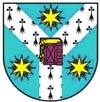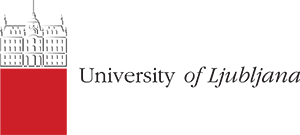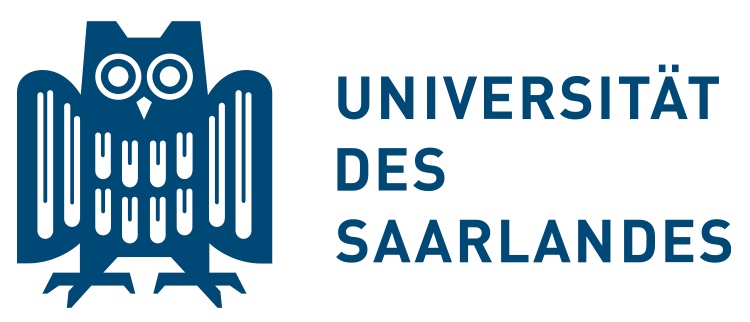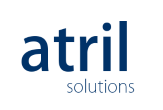eCoLoTrain continues the unique collaboration established through the eCoLoRe project between industry stakeholders, professional associations and university trainers involved in translation and translation training.
The eCoLoTrain consortium consists of two universities with acknowledged expertise in designing materials for students with little or no prior exposure to ICTs, three universities in the new EU Member States and Candidate Countries, two suppliers of ICT tools for eContent localisation, and two professional associations representing over 6,000 freelance and corporate translators.
Academic partners
The academic partners Saarland University and the University of Leeds have substantial experience in managing national and international research projects like the EU-funded LETRAC and eCoLoRe projects. Moreover, they have a long experience in developing methods and materials for eContent localisation in the field of both student education and continuing vocational training. Tallinn Pedagogical University and the University of Ljubljana, ensure the active involvement of the new EU Member States, while the University of Iaşi plays an important role as a catalyst in the EU Candidate Countries.
"Alexandru Ioan Cuza" University

The Undergraduate and MA Translation, Terminology and Interpreting Programmes were set up at the Faculty of Letters of the "Al. I. Cuza" University of Iaşi in1997. They gather some of the best students and teaching staff of the Faculty. The Faculty was involved in two TEMPUS projects (1997-1999 and 1999-2001) on training the translator trainers in Romania, and has had permanent contacts as well as students and teaching staff exchanges with other European universities, developing such programmes, e.g. The University of Leeds, ISTI Bruxelles, University of Rennes2, Universitat Autonoma de Barcelona, The University of Copenhagen, etc. The teaching staff and MA students have also actively participated in national and international conferences in Translation Studies (some of them held in Iaşi) and in publishing the results of their research in national and international translation reviews.
- Address: Bulevardul Carol I, nr.11 / 700506 - Iaşi
- Telephone: 40 232 201010
- Fax: 40 232 201201
- Email: rectorat(at)uaic.ro
- Website: https://www.uaic.ro/
University of Leeds

The Centre for Translation Studies was established in 2001 to promote excellence in teaching, research and consultancy in the professional practice of translation and interpreting. Its activities place particular emphasis on design, use and evaluation of language technologies to support translators and interpreters at work. It hosts four MA programmes - computer-assisted translation, screen translation, conference interpreting and British Sign Language interpreting - with a combined intake of over 100 students working with Arabic, BSL, Chinese, French, German, Greek, Italian, Japanese, Russian, Portuguese and Spanish. Research staff and PhD students are active in the domains of film translation, conference interpreting, translation memories, software localisation, machine translation, controlled languages and corpus linguistics. The Centre also engages in research and consultancy in partnership with the language industries. The term which most aptly captures the Centre's interests is multilingual communication design.
- Address: Centre for Translation Studies, University of Leeds, Leeds, LS2 9JT, UK
- Telephone: +44 (0)113 3433365
- Fax: +44 (0)113 3433287
- Email: ecolore(at)leeds.ac.uk
- Website: https://ahc.leeds.ac.uk/centre-for-translation-studies
University of Ljubljana

The Department of Translation is an integral part of the Faculty of Arts, University of Ljubljana. It is the only full-bodied university level translation institute in Slovenia with over 450 students and over 50 members of teaching staff, of which about 30 are permanently employed. It is member of the CIUTI association of translation institutes. Founded in 1997, the young institute has had a strong IT curriculum component from the beginning, including CAT tools, terminology management, use of corpora in translation and localisation. A range of tools is presented to students, including four TM systems, one localisation suite and several tools for text alignment and concordancing. The Institute can contribute to eCoLoTrain by supporting the initial needs analysis, providing staff for the testing of curriculum modules, giving feedback on project materials and providing local technical support for online training sessions. The Institute will furthermore take care of the dissemination and exploitation of materials and results to its partner institutes in the region.
- Address: Department of Translation, Faculty of Arts, University of Ljubljana, Askerceva 2, SI-1000 Ljubljana
- Telephone: +386 (0)1 2411000
- Fax: +386 (0) 1 2521310
- Email: prevajalstvo(at)ff.uni-lj.si
- Website: https://www.uni-lj.si/
Saarland University

The Department for Applied Linguistics, Translation and Interpretation (Saarland University) has been involved in the training of translators and interpreters since 1949. Between 1988 and 1993 it developed a model curriculum in linguistic data processing and language technology for future translators and interpreters. Since 1993, this curriculum has been an integral part of the regular training programme for translators and interpreters. In addition, continuing training courses are offered regularly for professional translators, dealing with tools for translation and terminology management. In 1990 a chair for Machine Translation (Romance Languages) was established in the Department. The sub-department for "Linguistic Data Processing" together with the chair for Machine Translation are also engaged in testing and evaluating translation tools; most of the translation tools currently available on the market are installed in the computer laboratory of the Department. The Department also took part in the EU-funded LETRAC project, which proposed a general outline for curriculum modules in the field of language technology, based on surveys in industry and training institutions, and played a major role in developing methods and materials for the eCoLoRe project funded under the Leonardo programme of the EU. eCoLoTrain will be overseen by Prof. Johann Haller, who holds the chair for Machine Translation and has ample previous experience in managing complex, national and international multi-partner research projects.
- Address: Fachrichtung 4.6, Universität des Saarlandes, 66123 Saarbrücken, Deutschland
- Telephone: +49 (0)681 3022929
- Fax: +49 (0)681 3024440
- Email: ecolotrain(at)mx.uni-saarland.de
- Website: http://fr46.uni-saarland.de/
Tallinn University

Tallinna Ülikool (Tallinn University) has acted as a promotor of new educational ideas and as a centre for teacher training in Estonia for more than 80 years. Today TLÜ is standing as a central training and research establishment in Tallinn, focusing its activities besides teacher training also on humanities, social and natural sciences. The Interpreter and Translator Training Centre, established in 2001, offers 2-year MA programmes in both translation and interpreting.
- Address: TÜ Tōlkekoolituskeskus, Tallinna Ülikool, Narva mnt 25, 10120 Tallinn, Estland
- Telephone: +372 640 9311
- Fax: +372 640 9300
- Email: at(at)nu.ee
- Website: http://www.tlu.ee/
ATRIL

ATRIL develops and markets the Déjà Vu Translation Memory system. Déjà Vu is a computer-assisted translation software tool aimed at individual translators, translation companies and international organisations. Its main components are a multi-format text editor, a translation memory module, a terminology management tool, an alignment utility and a number of other modules for different purposes. Déjà Vu improves quality, consistency and overall speed in the translation process by controlling terminology use, reusing previous translations and simplifying translation project management and desktop publishing tasks.
Besides product marketing activities, ATRIL provides product support and consultancy services, and develops and teaches Computer-Assisted Translation courses focusing on Déjà Vu.
- Address: ATRIL Language Engineering S.L., Collado Mediano 26, Las Rozas, 28230 Madrid, Spain
- Telephone: +34 91 146 1660
- Fax: +34 91 146 1661
- Email: sales(at)atril.com
- Website: http://www.atril.com/
PASS Engineering

PASS Engineering GmbH was created in 1989. The company is based in Bonn, Germany (www.pass-engineering.com). It was established as a software provider for medical analysis systems. Medical software is by definition international software. Some of our clients - as global players - encouraged us to look for ways to offer the localised software at reasonable prices.
Our idea of efficient localisation, integrated in the development process, has been realised in the creation of PASSOLO, the PASS Software Localizer, marketed since 1998.
Professional associations
The two professional associations, BDÜ (Bundesverband der Dolmetscher und Übersetzer e.V.) and ITI (Institute of Translation and Interpreting), will ensure that trainers from outside academe are included in testing eCoLoTrain materials. Through their intensive contacts with professional associations all over the world BDÜ and ITI will make a considerable contribution to international dissemination and exploitation of results within and beyond the EU.
BDÜ

Founded in 1953, the Bundesverband der Dolmetscher und Übersetzer (Federal Association of Translators and Interpreters) is the largest professional association of interpreters and translators in the Federal Republic of Germany. It represents the professional interests of some 5,000 linguists who have obtained membership by virtue of their professional qualifications.
The BDÜ has its headquarters in Berlin. It is an umbrella organisation representing the member associations affiliated to it, which are autonomous, registered associations.
The BDÜ is a member, inter alia, of the Fédération Internationale des Traducteurs (FIT). It works publicly to bring its influence to bear on relevant legislation and features in the German Bundestag's list of lobby organisations.
- Address: BDÜ; e.V., Kurfürstendamm 170, D-10707, Berlin, Deutschland
- Telephone: +49 (0) 30 887 128 30
- Fax: +49 (0) 30 887 128 40
- Email: bgs(at)bdue.de
- Website: http://www.bdue.de
ITI
The Institute of Translation and Interpreting was founded in 1986 as the only independent professional association of practising translators and interpreters in the United Kingdom. It is the primary source of information on these services to government, industry, the media and the general public. With its aim of promoting highest standards in the profession, ITI serves as a meeting place for all who understand the importance of translation and interpreting. ITI offers guidance to those entering the profession and advice not only to those who offer language services but also to their customers.
The ITI has a large (almost 3,000) and growing international membership. Different levels of membership are on offer to suit translators and interpreters with varying amounts of experience, from newcomers to the industry to experienced professionals. Members are required to abide by the Institute's professional code of conduct, expected to subscribe to its aims and are encouraged to take an active part in its life and events. Corporate membership is also open to educational, commercial and government bodies as well as translation companies.
The ITI is the only UK member of FIT, the International Federation of Translators and Interpreters, where it represents the interests of members and takes part in development of international policies likely to affect the future of the profession.
- Address: ITI, Fortuna House, South Fifth Street, Milton Keynes, MK9 2EU, UK
- Telephone: +44 (0)1908 325250
- Fax: +44 (0)1908 325259
- Email: info(at)iti.org.uk
- Website:http://www.iti.org.uk/


